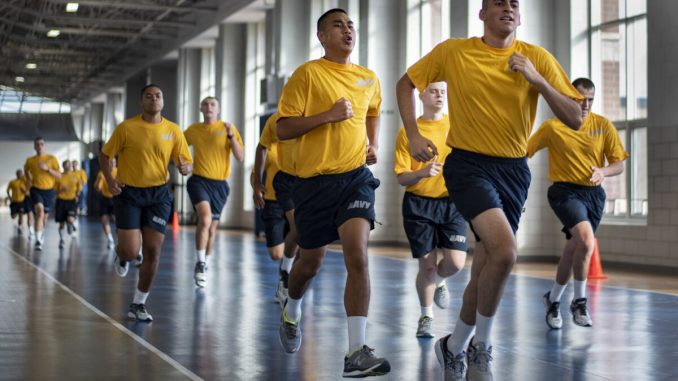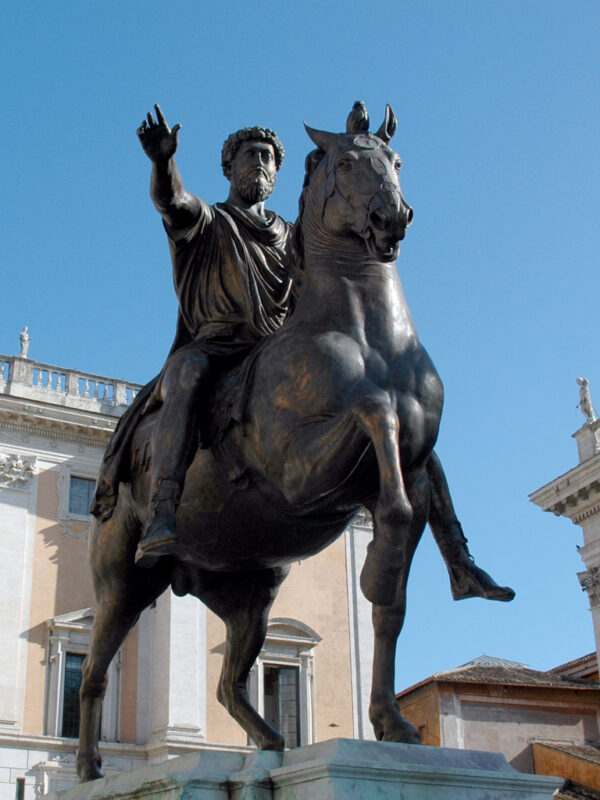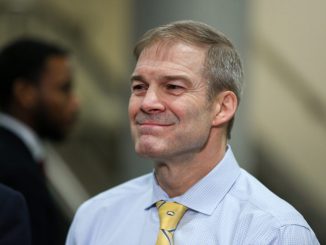
During his high school years, my youngest son played point guard on a homeschool basketball team in Asheville, North Carolina. His coach, Tom, was a physician and a father of four boys, two of whom were also on my son’s team. He was a great coach who took no guff from the boys, ran disciplined practices, and knew the game well enough to produce winning teams during the entire time my son played for him.
For away games, Tom, as well as several other parents, would drive the team to cities like Winston-Salem and Greenville. Unlike those other moms and dads, however, he would spend his hours in the car talking to the boys about a variety of subjects: world politics, moral rectitude, and saving money, to name a few. He became well known among both parents and players for these conversations, or, as some players called them, classes. One “class” in particular that impressed my son was a discussion of the qualities they should look for in a wife. Another involved courtship and how to treat a woman.
Coach Tom became a major figure in my son’s life, so much so that my son invited Tom and his wife to his wedding.
Looking back at those days, I realize today even more than I did then the gifts Tom was giving to his players. He was not only teaching high school students how to play basketball: He was helping boys become men.
Initiation Rites
Throughout human history, young males underwent various tests marking their entry into manhood. Once they had passed these tests, which often involved proving their prowess as hunters and warriors, the other men of their tribe or community welcomed them into their ranks. In the Maasai tribe of Kenya, for example, a young male was welcomed to full manhood once he had killed a lion with a spear. A warrior in the Middle Ages was first a page, then a squire, and—once he had earned his spurs—was ultimately dubbed a knight. Both Native Americans and pioneers often earned their claim to manhood by the skills they demonstrated in hunting. Later, many male teenagers marked their entrance into adulthood by working and providing for their families.
Though today we have no universal rite of passage into manhood, some rituals still mark this event. Earning a driver’s license at age 16, becoming a legal adult and able to vote at 18, and being able to buy a beer in a bar at age 21 are all steps taken on the road to manhood. Of course, these same landmarks are rites of passage for girls, losing any meaning they might possess as being specifically male steps toward maturity.
The 3 Stages of Change
In “Coming of Age: The Importance of Male Rites of Passage,” husband-and-wife team Brett and Kate McKay discuss the meaning of this marker of manhood, its near-total absence from today’s culture, and ways for fathers and mentors to revive such recognition of this transformation of boys to men. They write that traditional rites of passage include three distinct phases for this change: separation from a tribe or group, transition through a series of ordeals, and reincorporation into the group.
As the McKays point out, today’s military can serve as a springboard into manhood. A young male out of high school leaves his family and friends (separation), enters boot camp (transition), and after completing a serious of rigorous tests, graduates and becomes a full member of the group—the Marines, Army, Air Force, Navy, or Coast Guard—with the rights and privileges that come with that distinction (reincorporation).
And this military training does work in precisely this manner. A nephew of mine, a mediocre student who spent a good deal of time in his teenage years playing video games, joined the Army shortly after high school. Now, just a few years later, he is, by any definition of the word, a man. He is a trained medic and a parachutist, as well as an infantryman; pays his own way; and is recently married and now has a child.
On the other hand, some of our young males appear lost, muddled as to the meaning of manhood and unsure when that transition occurs. Does manliness come with graduation from high school or college? With a job or profession? With marriage? The birth of a child?
Creating a Way
The McKays give their readers—particularly fathers—some excellent suggestions for creating rituals celebrating the attainment of manhood. Various religious faiths offer confirmations or bar mitzvahs as entryways into adulthood, and the McKays point out that these ceremonies become even more significant when the parents help make them so through discussions of manliness and maturity.
The McKays also recommend we invent private ceremonies that celebrate this passage, occasions preceded by a time of training, increased responsibilities, and a bonding of father and son. These might range from an 18th birthday party of special recognition to a father-and-son camping trip. If the father is absent from the child’s life, they offer a number of alternative suggestions for “personal rites of passage,” such as joining the military or Peace Corps, taking a mission trip, or undertaking other endeavors to help with a transition to manhood.
When I was living in Asheville, I knew a dad who devised a special manhood ceremony for each of his sons. He assembled their friends and their mentors, like coaches, teachers, pastors, or Scout leaders around a bonfire at his church, and there those who had influenced his son’s life would speak in praise of his accomplishments and offer advice on the responsibilities and duties that now awaited him as a man. I attended two of these ceremonies and spoke at one of them, and both times the words of the older men and the shining, proud face of the young man deeply moved me.
Others of the Tribe
Notice that in this celebration the father alone did not initiate his son into manhood. He asked other adult male mentors to take part in this ceremony of transition.
In another article, “Why Fathers Shouldn’t Initiate Their Sons Into Manhood,” the McKays recommend this course of action. They point out that throughout Western literature and the films of the last century, men other than their fathers acted as guides for young males. They note, for example, the absent Odysseus didn’t teach his son Telemachus the meaning and ways of manhood. Instead, his friend Mentor took the boy under his wing and instructed him, which is of course where we get the word “mentor.”
Again and again in movies, we see this same phenomenon. “Secondhand Lions” tells the story of two crusty old uncles who take in their nephew, Walter—who has no father and a negligent mother—and raise him to be a man. In “Hoosiers,” a movie about a small-town basketball team in Indiana that goes on to win the state championship, we meet newly arrived coach Norman Dale, played by Gene Hackman, who drills the team in fundamentals, disciplines them for misbehavior, and teaches them the value of hard work and team play. “We Were Soldiers” gives us Lieutenant Colonel Hal Moore, played by Mel Gibson, and Sergeant Major Plumley, played by Sam Elliott—two experienced warriors who provide the much younger men in their command with sage advice and set an example in courage for them on the battlefield.
In the opening pages of “Meditations,” Marcus Aurelius thanks his father and grandfather for the life lessons they taught him, but also includes a number of other teachers and guides to whom he’s indebted for his training and education. Here is yet another sterling example of the importance of other men in the life of a boy on his journey to manhood.

Making Men in Confusing Times
The general absence of some ritual signaling the beginning of manhood comes at a time when young men are also awash in confusion about the meaning of manhood itself. Our culture frequently delivers contradictory messages to them. On one hand, we want them to display what were once considered feminine virtues: to become more caring, more open with their emotions, and to be more tender and kind. Yet we also want them to be tough, to carry the weights given them by duty and life without complaint, and to step up and defend others weaker than themselves.
As a result, many men in their 20s and even their 30s may not think of themselves as “real men.”
We can change this situation. If we train up our sons and grandsons to practice the virtues, to accept responsibility for their lives, and to work hard, we are giving them the compass and map that will help them find their way through a broken culture.
And if we then provide those same young men with some specific time and occasion when we declare them members of the manhood tribe—a road trip, a festive and meaningful party, a bonfire where they are surrounded by mentors and male friends—they will leave home and enter the world knowing they are men.
To act like men, our sons need to hear the words, “Today, you are a man.”
Jeff Minick has four children and a growing platoon of grandchildren. For 20 years, he taught history, literature, and Latin to seminars of homeschooling students in Asheville, N.C. He is the author of two novels, “Amanda Bell” and “Dust on Their Wings,” and two works of non-fiction, “Learning as I Go” and “Movies Make the Man.” Today, he lives and writes in Front Royal, Va. See JeffMinick.com to follow his blog.






Be the first to comment